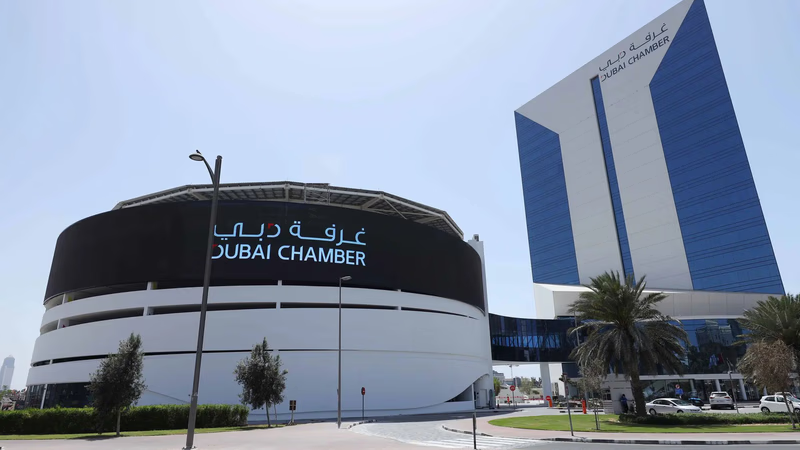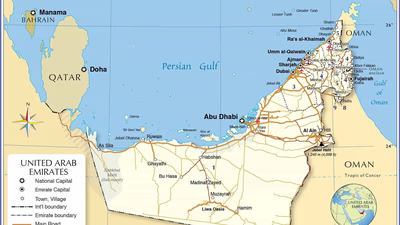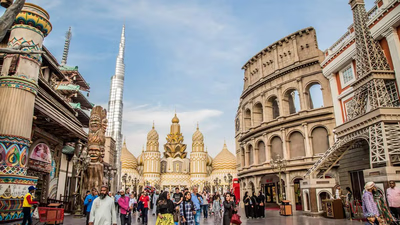
UAE trade platform showcasing verified exporters and importers.
The United Arab Emirates (UAE) has specific laws and regulations governing imports and exports to ensure smooth trade operations, protect public health and safety, and adhere to international trade practices. While I can provide a general overview, it's important to consult with official sources or legal experts for the most up-to-date and accurate information regarding export and import laws in the UAE. The UAE applies customs duties and tariffs on certain goods imported into the country. The duty rates vary depending on the nature of the product, its origin, and the applicable trade agreements. It's important to determine the specific tariff rates for your goods by consulting the UAE's Federal Customs Authority (FCA) or the relevant customs authorities in the respective emirate.
The UAE adheres to international trade sanctions and embargoes imposed by the United Nations and other international bodies. Importers and exporters must comply with these restrictions and avoid engaging in any trade activities that breach these sanctions. The UAE has designated free zones and special economic zones that offer specific benefits and exemptions for importers and exporters. These zones have their own regulations and customs procedures, often providing 100% foreign ownership and tax advantages.
It's important to note that specific rules and regulations may vary between the different emirates of the UAE. Therefore, it is advisable to consult with the relevant authorities, such as the Federal Customs Authority, the Department of Economic Development in the respective emirate, or seek professional legal advice to ensure compliance with all applicable laws and regulations.
The UAE is at the top of the list of best countries for exports and imports due to the low rates of customs tariffs imposed on the import of various goods and the relatively high ease of trade and any import-export among the Arab countries. The UAE is a country that has made great efforts in recent years to diversify its economy and expand the range of its import and export goods.
The process of importing to the country of the Emirate is generally simple and fast. To enter the UAE market, businesses and companies must have valid commercial licenses from UAE organizations and permanent registration of companies in the UAE Customs Office. Importing companies must submit their customs clearance application through the website of dubaitrade.UAE and provide documents such as blacklisting, certificate of origin, packing list, and import license.
The UAE has established cooperation agreements with most of its trading partners in various fields, which, according to the provisions agreed in these agreements, prevent the import and export of various goods from paying double taxation in various fields. Since 2013, 64% of the UAE's foreign trade value has come from imports, most of which are precious metals and machinery. Prohibited goods include drugs, ivory, printed goods that do not conform to social and religious values, and goods imported from Israel.
The UAE has imposed a 5% tariff on all goods imported from the Persian Gulf Cooperation Council (GCC). However, alcohol enters the UAE at a customs tariff rate of 50% and tobacco at a customs tariff rate of 100%. The Business Simplicity Report, published in 2017, shows that the UAE spends very little time and money importing and exporting compared to other Middle Eastern countries. The UAE is one of the easiest countries to import and export in terms of import scope, strong economy, efficient processing, and low tariffs.
The UAE has regulations concerning the import of food, agricultural products, and animal products to ensure compliance with health and safety standards. Importers may need to obtain specific certifications or undergo inspections to ensure compliance with these measures. The UAE has robust intellectual property laws to protect trademarks, copyrights, and patents. Importers and exporters must respect IPR regulations and ensure they have the necessary permissions or licenses for any copyrighted or trademarked goods they trade.
The UAE has specific regulations on the import and export of certain goods, including restricted and prohibited items. Restricted items may require special permits, licenses, or approvals from relevant authorities, such as the Ministry of Economy, Ministry of Health, or Ministry of Environment and Climate Change. Prohibited items are strictly prohibited from import or export under UAE law. Importers and exporters in the UAE must adhere to documentation requirements for customs clearance. This includes providing necessary commercial invoices, packing lists, certificates of origin, and any relevant permits or licenses. Exporters may also need to obtain an export license for certain goods.
-

The United Arab Emirates (UAE) is a federation of seven emirates located in the Middle East, known for its significant oil reserves and economic diversification efforts. The country has transformed into a global business hub, with Dubai recognized for its tourism and architectural marvels. Abu Dhabi, the capital, features cultural landmarks like the Sheikh Zayed Grand Mosque. The UAE"s economy is bolstered by sectors such as finance, real estate, and renewable energy, attracting international companies due to its transparency and security. The multicultural society comprises both Emiratis and expatriates, with Arabic as the official language and English widely spoken in business contexts. The UAE"s strategic geographical location enhances its role in regional trade, making it a vital player in West Asia"s import-export activities. Hosting major events like Dubai Expo 2020 and international sports competitions further solidifies its status as a trade advertising platform. Understanding the UAE"s unique characteristics is essential for businesses looking to engage in commodity trade or supply chain solutions within the region.
-

The UAE"s economy has historically depended on oil and gas revenues, but significant efforts have been made to diversify into sectors like tourism, finance, and technology. The government aims to create a sustainable economy by reducing reliance on petroleum exports. Dubai stands out as a regional financial center with a robust logistics network that enhances global trade connectivity. Despite diversification, oil still plays a crucial role in the economy, particularly in Abu Dhabi. The UAE ranks among the top exporters and importers globally, with strong trade ties to countries like China and India. The tourism sector has become a major non-oil income source, supported by luxury hotels and extensive development projects. The UAE actively seeks foreign investment through favorable policies and free zones that offer tax exemptions and 100% foreign ownership. This openness has fostered an environment conducive to international business growth, making the UAE a key player in global trade. "
-

The UAE has established comprehensive laws and regulations for imports and exports to facilitate trade while ensuring public health and safety. Customs duties vary based on product type, origin, and trade agreements, necessitating consultation with the Federal Customs Authority for accurate tariff rates. The UAE adheres to international sanctions, requiring compliance from all traders. Free zones offer benefits like 100% foreign ownership and tax exemptions, but regulations differ across emirates. Businesses must secure valid commercial licenses and register with the UAE Customs Office to operate. The country has a high import rate, primarily in precious metals and machinery, with specific tariffs on goods like alcohol (50%) and tobacco (100%). The UAE"s efficient trade processes make it one of the easiest countries for import-export activities in the region. Compliance with health standards is crucial for food and agricultural imports, often requiring certifications or inspections.
Intellectual property laws are robust, necessitating respect for trademarks and copyrights in trade activities. Importers must also navigate documentation requirements for customs clearance, including invoices and permits. "
-

Dubai has emerged as a pivotal international trade hub in the Middle East, particularly for Iranian traders. Its strategic location, coupled with advanced port and airport facilities, facilitates efficient import and export operations. The city is known for its diverse export activities, including agricultural products like fruits and nuts, as well as handicrafts. Exports to Dubai can be conducted via air or sea, with the latter often utilizing traditional dinghy methods due to their cost-effectiveness and speed. This method is particularly favored for non-sensitive goods that can withstand exposure to water. Despite Dubai"s economic strength, its agricultural sector is limited, leading to a reliance on imports for most summer crops from countries like Iran and Turkey. The fruit market in Dubai has become especially lucrative for Iranian exporters, with watermelon and tomatoes being among the top exported items. Overall, the trade dynamics in Dubai highlight its role as a vital B2B marketplace in West Asia. "
-

The UAE"s population exceeds 9 million, with Emiratis constituting a small fraction. The majority are expatriates drawn from diverse regions, including South Asia, the Middle East, and Western countries. This demographic diversity is fueled by the UAE"s status as a global business hub, offering numerous job opportunities in sectors like construction, finance, and healthcare. The government provides Emirati citizens with social welfare benefits and public sector employment opportunities. The population dynamics are influenced by government policies aimed at balancing the native Emirati population with the expatriate workforce. As a result, the UAE ranks fifth globally in terms of being immigrant-friendly. The country is geographically located in the Middle East and consists of seven emirates: Abu Dhabi, Dubai, Sharjah, Ajman, Umm Al Quwain, Ras Al Khaimah, and Fujairah. Each emirate has unique characteristics that contribute to the overall economic landscape of the UAE. With ongoing changes in global conditions and local policies, the demographic composition of the UAE is expected to evolve further.
-

Abu Dhabi, the capital of the UAE, is the largest emirate and serves as the political and cultural hub. Known for its stunning architecture, it features landmarks like the Sheikh Zayed Grand Mosque and Emirates Palace. Dubai, the most populous city, is a global business center famous for its luxurious lifestyle and iconic structures such as Burj Khalifa. Other emirates like Ras Al Khaimah offer outdoor activities with mountainous landscapes, while Fujairah is popular for diving due to its rich marine life. Each emirate contributes uniquely to the UAE"s economic landscape, showcasing a blend of modernity and tradition. The UAE"s diverse cities enhance its appeal as a trade platform in West Asia, attracting both importers and exporters.






